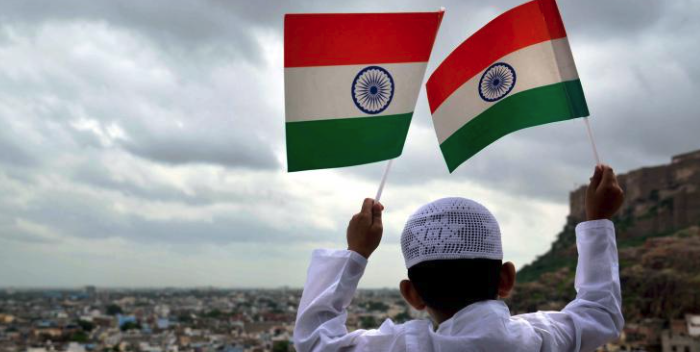OPINION: Indian First Or Muslim First? Prioritizing Nation Over Religion
Being Indian First means embracing the idea that our national interests—security, prosperity, and unity—transcend the boundaries of religion, caste, or creed.
As an Indian Muslim and a counterextremism expert, I often find myself at the crossroads of a question that stirs heated debates: Indian First or Muslim First? This question, as I recently tweeted, is not a casual inquiry but a deliberate probe into whether we, as Indian Muslims, prioritize our national identity and the interests of our country over our religious affiliations. It’s a question rooted in history, shaped by the fault lines of our past, and one that demands an honest reckoning.
My answer is unequivocal: Indian First. Always.
This question isn’t about undermining religious beliefs or pushing for a homogenized cultural identity. It’s about recognizing the undeniable reality that religious identity, particularly Islam, has been a significant factor in some of the most divisive moments in our nation’s history.
In 1947, the creation of Pakistan under Muhammad Ali Jinnah’s leadership was driven by the idea that Muslims needed a separate homeland. The partition that followed tore apart the fabric of a united India, leaving scars that still ache. Later, in 1971, the birth of Bangladesh further fragmented the subcontinent.
And in Kashmir, decades of insurgency have been fueled, in part, by the interplay of religious identity and separatist ambitions. These events weren’t merely political—they were seismic shifts where religious identity was weaponized to balkanize our great nation.
Let me be clear: acknowledging this history doesn’t mean vilifying Islam or questioning the faith of millions of Indian Muslims. It means confronting the ways in which religious identity has, at times, been manipulated to prioritize “biradari”—our brethren—over the nation.
This manipulation isn’t unique to Islam; it’s a tactic used across communities to sow division. But as Indian Muslims, we must ask ourselves: can we allow our religious identity to supersede our loyalty to the nation that nurtures us, protects us, and gives us a shared future?
Choosing “Indian First” doesn’t mean abandoning our faith. I am a proud Muslim, and my religious beliefs guide my values and my sense of purpose. But faith is personal—it’s a compass for the soul, not a blueprint for national policy.
When we prioritize our religious identity over our national one, we risk falling into the trap of exclusionary thinking, where “us” versus “them” becomes the lens through which we see the world. That mindset fuels mistrust, alienates communities, and weakens the pluralistic ethos that makes India unique.
Being Indian First means embracing the idea that our national interests—security, prosperity, and unity—transcend the boundaries of religion, caste, or creed. It means recognizing that the progress of our nation benefits us all, regardless of our personal beliefs. It’s about standing firm against any ideology, whether rooted in religion or otherwise, that seeks to divide us. This choice doesn’t dilute our identity as Muslims; it strengthens our role as stakeholders in India’s future.
The question of “Indian First or Muslim First?” also carries a broader lesson for all Indians. In a country as diverse as ours, every community faces moments where loyalty to a subgroup—whether religious, linguistic, or regional—can clash with the greater good. The answer lies in choosing the nation over narrower affiliations, not because we must erase our differences, but because our differences thrive best under the umbrella of a united India.
My work has taught me that extremism often begins with the elevation of one identity over others, creating a hierarchy of loyalty that erodes shared purpose. In India, we have the chance to reject that path. We can build a future where our diversity is our strength, not our fault line.
So, when asked, I say: Indian First. Always. Not because I love my faith any less, but because I love my country enough to know that its unity is our greatest asset. Let’s choose a nation that stands tall, not one divided by the echoes of 1947. Let’s choose India—together.
Disclaimer: Views expressed by writers in this section are their own and do not reflect Milli Chronicle’s point-of-view.



